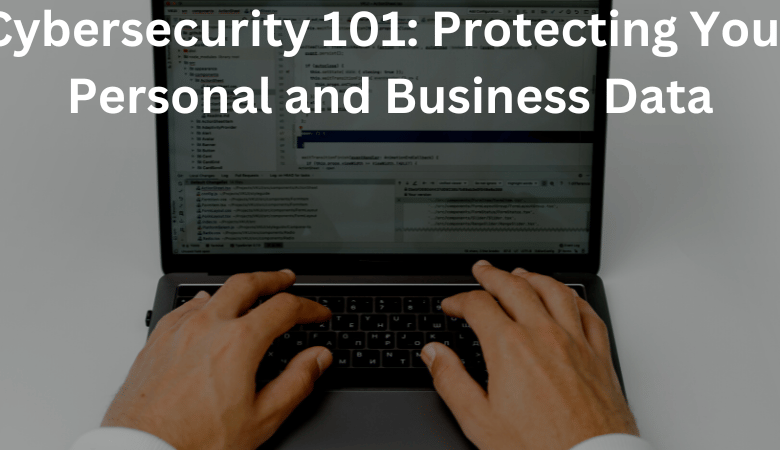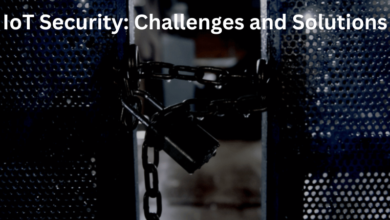Cybersecurity 101: Protecting Your Personal and Business Data

Cybersecurity 101: Protecting Your Personal and Business Data is a comprehensive guide to keeping your online information safe. The book covers everything from creating strong passwords to backing up your data to avoiding phishing scams. Cybersecurity 101 is an essential read for anyone who wants to keep their personal and business data safe from cyber criminals.
What is cybersecurity?
In the past few years, cybersecurity has become a hot topic. With high-profile data breaches making headlines on a regular basis, it’s no wonder that people are concerned about the safety of their personal and business data. But what is cybersecurity, exactly?
Cybersecurity is the practice of protecting electronic information from unauthorized access or theft. This includes everything from personal data like credit card numbers and social security numbers to confidential business information like trade secrets and financial records. With the increasing use of digital devices and the internet, cybersecurity is more important than ever.
There are a number of ways to protect data from cyber threats. One is to encrypt it, which makes it unreadable to anyone who doesn’t have the key to decode it. Another is to create backups, so that if data is lost or stolen, it can be recovered from a copy. Organizations can also implement security measures like firewalls and intrusion detection systems to prevent unauthorized access to their networks.
Of course, no security measure is perfect, and even the most well-protected systems can fall victim to sophisticated attacks. That’s why it’s important to regularly update software and security systems, and to educate users on good cybersecurity practices. By staying informed and taking steps to protect your data, you can help keep it out of the wrong hands.
The importance of cybersecurity
As the world becomes increasingly digitized, the importance of cybersecurity cannot be overstated. With more and more businesses and individuals conducting transactions and storing sensitive information online, the risk of cyberattacks is ever-present. A cyberattack can have devastating consequences, ranging from the loss of sensitive data to the disruption of critical infrastructure.
That’s why it’s so important for businesses and individuals to take steps to protect their data and systems from attack. Cybersecurity is the practice of protecting computers, networks, and data from unauthorized access or damage. By implementing strong cybersecurity measures, businesses and individuals can greatly reduce the risk of becoming a victim of a cyberattack.
There are a variety of different types of cybersecurity risks that businesses and individuals need to be aware of. These include viruses and malware, phishing attacks, SQL injection attacks, and denial of service attacks. By understanding these risks and taking steps to protect against them, businesses and individuals can greatly reduce the likelihood of being the victim of a cyberattack.
One of the best ways to protect against cybersecurity risks is to implement a strong security program. This should include both technical measures, such as firewalls and intrusion detection systems, and non-technical measures, such as employee training and awareness. By taking a comprehensive approach to security, businesses and individuals can make it much harder for attackers to succeed.
The importance of cybersecurity cannot be overstated. In today’s digital world, businesses and individuals must take steps to protect their data and systems from attack. By implementing strong security measures, businesses and individuals can greatly reduce the risk of becoming a victim of a cyberattack.
The basics of cybersecurity
We all know that we should be careful when we’re online. We’ve heard the horror stories of people’s personal information being stolen, or their computers being taken over by malicious software. But what does cybersecurity really entail? In this blog post, we’ll cover the basics of cybersecurity, and how you can protect yourself from common threats.
First, let’s define cybersecurity. Cybersecurity is the practice of protecting electronic information from unauthorized access or theft. This includes both personal and business data, and can be accomplished through a variety of means, including firewalls, encryption, and user education.
One of the most common cybersecurity threats is malware. Malware is any software that is designed to harm a computer or its user. This can include viruses, Trojans, spyware, and more. Malware can be downloaded inadvertently by clicking on a malicious link, or it can be installed by a hacker who has gained access to your computer. Once malware is on your system, it can do anything from displaying pop-up ads to encrypting your personal data and demanding a ransom for its return.
Another common threat is phishing. Phishing is a type of social engineering attack in which a hacker attempts to trick you into revealing sensitive information, such as your login credentials or credit card number. They may do this by sending you an email that appears to be from a legitimate source, such as your bank or a company you do business with. The email will usually contain a link that takes you to a fake website that looks identical to the real one. If you enter your information on the fake site, the hacker will then have access to your account.
There are a few things you can do to protect yourself from these and other cybersecurity threats. First, keep your computer and software up to date. Hackers often exploit vulnerabilities that have been patched in newer versions of software. Second, use strong passwords and don’t reuse them across multiple accounts. Third, be careful about the emails and links you click on. If something looks suspicious, don’t click it. Finally, install an antivirus program and run regular scans.
By following these simple tips, you can help keep your personal and business data safe
How to protect your personal data
As the world increasingly moves online, it’s more important than ever to protect your personal data. Here are a few tips to help you stay safe online:
1. Use strong passwords
Make sure your passwords are strong and unique. Avoid using easily guessed words or phrases, and don’t reuse passwords across different accounts.
2. Keep your software up to date
One of the best ways to protect your computer from malicious software is to keep your software up to date. This includes your operating system, web browser, and any plugins or extensions you use.
3. Be careful what you click on
Be wary of email attachments and links from unknown senders. These could contain malware that can infect your computer or steal your personal data.
4. Use a secure connection
Whenever possible, use a secure connection when accessing sensitive information online. Look for https:// in the URL and a green lock icon in your web browser.
5. Back up your data
Make sure you back up your important files and data in case of a computer crash or malware infection. This way you won’t lose everything if your computer is compromised.
By following these tips, you can help protect your personal data and stay safe online.
-How to protect your business data
The internet has made it easier than ever for businesses to connect with customers and clients. However, it has also made it easier for cybercriminals to access sensitive business data. A data breach can be devastating for a business, leading to lost revenue, damaged reputation, and even legal trouble.
That’s why it’s so important to take steps to protect your business data. Here are some tips:
1. Keep your software up to date
One of the best ways to protect your business data is to keep your software up to date. Cybercriminals are always finding new ways to exploit vulnerabilities in software, so it’s important to install updates as soon as they’re available.
2. Use strong passwords
Another way to protect your business data is to use strong passwords. A strong password should be at least eight characters long and include a mix of uppercase and lowercase letters, numbers, and symbols.
3. encrypt your data
Encrypting your data is another effective way to protect it. When data is encrypted, it is converted into a code that can only be decoded with the right key. This makes it much more difficult for cybercriminals to access your data if they manage to breach your security.
4. Back up your data
Backing up your data is another important step in protecting it. This way, if your data is lost or damaged, you will have a copy that you can restore. There are many different ways to back up data, so be sure to choose a method that is right for your business.
5. Train your employees
One of the most important ways to protect your business data is to train your employees. They should know how to spot phishing emails, malicious websites, and other threats. They should also know how to keep their passwords safe and how to encrypt sensitive data.
By taking these steps, you can help protect your business data from cybercriminals.




